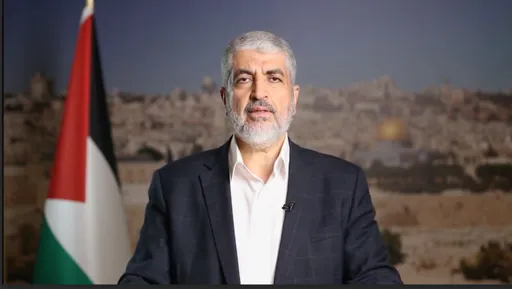The Indian government is being slammed for its mismanagement of the pandemic as opposition figures and civil society have called for a nationwide lockdown.
As the country grapples with the current devastating wave, the government, led by Hindu nationalist, Prime Minister Narendra Modi, has faced immense criticism from his electorate. While several health experts have slammed the federal government for ignoring the warning signs months before the second wave exploded in early April, a common perception in the country is that the government is missing in action, and that ordinary Indians need to fend for themselves.
The caseload of over 300,000 Covid-19 positive cases have put a massive strain on the country's healthcare infrastructure, while morgues and crematoriums are also struggling to deal with the seemingly unstoppable flow of dead bodies.
The daily deaths from Covid-19 in India have reached a record 3,780 during the past 24 hours. The south Asian nation accounted for nearly half the coronavirus cases reported worldwide last week.
Such is the desperation on the ground that foreign embassies in India tend to rely more on the civil society than on the Indian government. For instance, The New Zealand High Commission in India issued an urgent plea on Twitter, asking for an oxygen cylinder. The commission directly tweeted the Indian Youth Congress, an opposition political party, and its national president Srinivas BV, saying, "Could you please help with oxygen cylinders urgently at the New Zealand High Commission? Thank you."
The plea did not fall on deaf ears. Instead, Srinivas was quick to dispatch oxygen cylinders to the New Zealand High Commission.
The incident sparked a strong reaction on Twitter. Several Indian Twitter users praised the efforts of the Indian Youth Congress and ridiculed the government for not being present in the moment of crisis.
The Philippines Embassy also contacted the Indian Youth Congress for the same thing. Again, Srinivas responded quickly, sending oxygen cylinders to the compound.
This did not go down well with India's Ministry of External Affairs, however. India's External Affairs Minister, S.Jaishankar, reacted on Twitter saying that the government "checked with the Philippines Embassy" and that they had "no Covid cases" in the compound.
However, the Indian Youth Congress later shared screenshots of its chats with the Philippines Embassy. In one of the chats, the embassy had "thanked" the opposition political party for delivering the oxygen support.
Similarly, many local NGOs and religious bodies have stepped forward to do the work of the government.
Sikh gurdwaras have opened "oxygen langars" in several parts of New Delhi. Several mosques and Hindu temples have been turned into Covid-19 recovery centres.
Opposition figures are criticising Prime Minister Narendra Modi for allowing several political gatherings and religious festivals attended by hundreds of thousands of people who were mostly unmasked.
Furthermore, the Congress party, which is the main opposition party, urged Modi to impose a strict lockdown since the cumulative positive cases have surpassed 20 million.
A spokesman of the Congress party said there has been a "virtual collapse of health services” which makes the lockdown compulsory to "break the chain."
“We are now forced - there is no option - [we] will have to resort to a national lockdown to break the chain, to restore some order in the health services," Pawan Khera, from the Congress party told the BBC.
Senior Congress leader, Rahul Gandhi, also said a lockdown is now the only option because of a complete lack of strategy by GOI (the government of India).
PM Modi sees a lockdown as the last option due to the economic impact it would have on the country.
When the pandemic first hit India last January, the authorities did not introduce strict measures in the first phase.
The government then announced an unplanned lockdown in March 2020, giving nearly 1.4 billion people notice of just four hours.
The sudden lockdown caused 23.9 percent of GDP loss in the first fiscal quarter of the last year.
Vice President of the Indian Medical Association, a voluntary organisation of medical professionals, Dr Navjot Dahiya, called Modi a “super-spreader” of Covid-19.
“While the medical fraternity is trying hard to make people understand mandatory Covid norms, prime minister Modi did not hesitate to address big political rallies tossing all Covid norms in the air,” Dahiya toldThe Tribune.
He also saw that Modi’s government induced the devastating second wave in the country. Dahiya’s strong criticism came after massive election rallies of Modi’s BJP party.
Not only did Modi organise political events, he also praised a public massive event such as the Kumbh Mela, where three million Hindu came together on the banks of river Ganga in Haridwar.
Calls for Modi to resign have come from several quarters.
"We need a government. Desperately. And we don't have one. We are running out of air. We are dying," the Booker Prize-winning author, Arundhati Roy, wrote in an opinion piece that called for Modi to step down.























